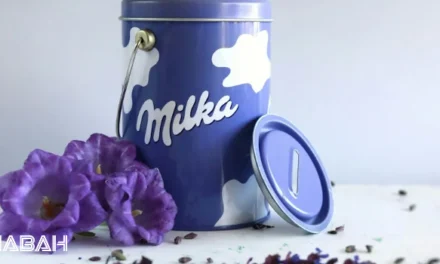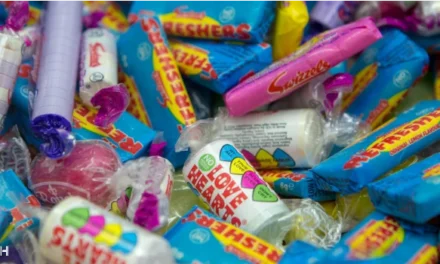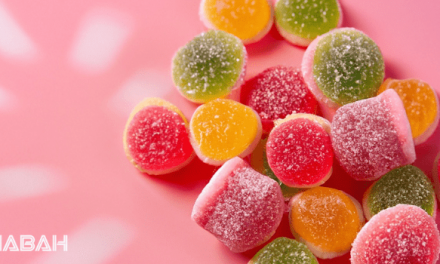Liquorice, also spelled licorice, is a popular candy known for its intense and divisive flavor profile. But can Muslims enjoy liquorice while upholding our Islamic dietary values? In this all-encompassing guide, we’ll uncover the intricacies of how liquorice obtains its signature flavor and is transformed into candy to determine if it meets halal standards for ingredients and preparation.
Why All Muslims Should Care About the Halal Status of Candy
Candy is much more than just a sugary treat to enjoy – it represents our priorities and principles as followers of the Islamic faith. Consuming halal foods and treats ensures we thoughtfully adhere to the dietary guidelines set forth in the Holy Quran and by the Prophet Muhammad (PBUH).
As Muslims, tracing each ingredient in a food product back to its origin empowers us to strictly avoid ingesting anything deemed haram – most notably pork byproducts, alcohol, improperly slaughtered meat, and meat from forbidden animals. By investigating candy ingredients thoroughly, we take an active role in maintaining spiritual purity through the foods we eat.
For parents, taking the time to research candy ingredients sets a positive example for children on the importance of mindfulness regarding what we put into our bodies. Liquorice’s widespread popularity and nostalgic place in candy culture makes verifying its halal status especially important. This allows the young and young at heart to enjoy liquorice while still honoring Islamic dietary rules.
Exploring the Root Origins and Flavor Extraction Process of Liquorice
To determine if liquorice candy is halal, we must first understand where its distinctive flavor comes from. The key component of all liquorice candy is derived from the gnarled root of the Glycyrrhiza glabra plant, more commonly referred to as licorice root or sweet wood.
Grown throughout the Mediterranean region and parts of Asia, the licorice plant can grow to be five feet tall and live for up to 20 years. The extract distilled from the harvested licorice root gives liquorice sweets their signature intense sweetness and anise-like flavor.
Licorice root boasts an extensive history of use in herbal medicine and foodstuffs, particularly valued for its anti-inflammatory effects. The root contains the natural compound glycyrrhizin, which is 50 times sweeter than sugar. Through a specialized extraction process, manufacturers isolate and concentrate this glycyrrhizin compound to produce liquorice extract.
The specific methods used to extract the glycyrrhizin from raw dried licorice root can vary slightly between manufacturers. Most often, the root is boiled in water and strained to derive a concentrated syrup, or extracted directly using an ethanol solvent and purified.
The key aspect is that this extraction procedure simply isolates and concentrates the naturally sweet component already present in the licorice root. No ingredients or processes that would render the final extract haram are introduced during this initial step.
Transforming Liquorice Extract into Chewy Candy Treats
On its own, the concentrated liquorice extract derived from licorice root has an extremely intense flavor. To craft it into the chewy penny candy, ropes, and bites that we know and love, additional ingredients must be incorporated to balance and shape the liquorice.
The specific supplemental ingredients vary widely between liquorice candy producers worldwide. This makes carefully checking the labelled ingredients on any liquorice of interest extremely important. We must scrutinize the additive ingredients to ensure they meet Islamic dietary standards.
One nearly ubiquitous ingredient in liquorice candy is wheat flour, adding structure and acting as a binding agent during manufacturing. For the flour to be considered halal, it must be verified that it comes from ethically grown wheat that was not fertilized with animal manure or other non-halal substances.
The wheat flour used must also be processed on equipment segregated from any pork products or other non-halal foods. Some liquorice candy producers unfortunately fail these criteria, using flour from questionable sources that renders the final candy haram.
Sugar is another very common complementary ingredient incorporated into liquorice candy. The specific type used, whether cane sugar, beet sugar or corn syrup, is less important than verifying it comes from halal-compliant sources.
Some liquorice candies use gelatin in place of wheat flour to achieve the chewy texture. If animal-based, the gelatin must come from halal slaughtered sources to be permissible. Fish gelatin is an acceptable alternative, but the fish must also be slaughtered properly.
Small amounts of beeswax or plant-derived waxes are typical as well, providing liquorice candy’s glossy sheen. As long as verified halal forms are used, such as beeswax from ethically sourced honey production, these components are permissible.
Does Enjoying Liquorice Candy Entail Consuming Alcohol?
Some Muslims raise concerns over whether consuming liquorice is halal, since the name sounds similar to alcoholic beverages. However, rest assured liquorice sweets contain absolutely no alcohol whatsoever.
The liquorice plant itself does not have any innate alcohol content in its roots or extract. During processing, the purified concentrated glycyrrhizin is simply boiled into a thick syrup or semi-solid extract, without undergoing any fermentation or alcohol production steps.
While some claim that alcohol may be used as a solvent during this initial extraction, glycyrrhizin can be efficiently derived using water or other permissible solvents. Responsible Islamic candy brands certify their extraction process to be completely alcohol-free to avoid this concern.
Despite the potentially misleading name, the scientific facts confirm that enjoying liquorice candy as a Muslim does not entail ingesting alcohol in any quantity. Liquorice flavoring derives purely from the licorice root itself, with no alcohol-based processing involved.
Do Animal Ingredients Like Gelatin Make Liquorice Haram?
After alcohol, the other major component that would definitively render liquorice candy haram is animal-based ingredients. This includes pork byproducts, improperly slaughtered meat, and any ingredients derived from prohibited animals.
Some low-quality candy producers include pork-derived gelatin or beef gelatin sourced from cattle slaughtered in non-halal fashion. Gelatin acts as a thickener and binding agent.
Since sufficiently concentrated liquorice root extract can provide these candy-making properties without additives, conscientious halal candy brands avoid non-halal gelatin completely. If gelatin is used, it must be verified as sourced from fish slaughtered according to Islamic guidelines.
Another potential animal ingredient to watch for is lard, a rendered pork fat sometimes used in baked confections. Lard would make any liquorice candy containing it decidedly haram. Checking ingredient labels enables identifying if any such hidden animal-based additives are present.
Certain European-produced liquorice candies incorporate permissible animal products like beeswax or carmine coloring derived from insect shells. When sourced through halal procedures, these controlled ingredients do not prohibit liquorice consumption for Muslims.
Steps to Verify Halal Compliance of a Liquorice Candy Brand
When evaluating whether a specific brand of liquorice candy is halal, you should begin by checking for certification from accredited halal organizations. This includes entities like the Islamic Food and Nutrition Council of America or the Muslim Consumer Group.
Any certification from reputable Islamic bodies indicates that the brand adheres to halal manufacturing guidelines. Lack of certification does not automatically signify an issue, but verified compliance provides added assurance.
Carefully examining the listed ingredients is another critical step. Watch for any ambiguous ingredients like “natural flavors” or uncertified colors. When possible, choose brands that use only liquorice extract and other simple whole food ingredients.
If you find any unclear additive ingredients, do not hesitate to contact the manufacturer and request details on their origins and processing methods. Responsible halal brands will be transparent about their sourcing.
Researching where different liquorice producers obtain raw materials from is prudent as well. For instance, wheat flour in European products is likely regional, while licorice extract may come from overseas. Opting for organic certified brands enables avoiding unethical ingredient sourcing.
Key Factors that Determine Whether Liquorice Is Halal
To summarize, here are the key points to evaluate when verifying if a liquorice candy is compliant with Islamic dietary law:
- The liquorice flavoring itself is extracted solely from the licorice root, not any alcohol source
- No alcohol whatsoever is produced when concentrating the glycyrrhizin compound into liquorice extract
- Non-halal animal ingredients like pork gelatin must not be included as fillers or binding agents
- Halal-compliant forms of beeswax and other animal products may be used in moderation
- Wheat flour and other supplementary ingredients must come from halal-supervised sources
- Transparent ingredient lists and halal certification ensure adherence to standards
Satisfying cravings for sweets need not come at the cost of compromising your commitment to halal principles as a Muslim. With vigilant label reading and due diligence into manufacturing processes, you can enjoy permissible liquorice candy that meets Islamic guidelines.
By becoming conscientious and informed consumers, we enable ourselves to make mindful choices that honor the Quran’s wisdom. When it comes to liquorice, with the proper diligence, we can indeed have our halal candy and eat it too!
Frequently Asked Questions – Is Liquorice Halal
What is the halal status of gelatine sourced from cattle bones that are not slaughtered according to Islamic guidelines?
Gelatine derived from cattle bones would be considered haram if the cattle are not slaughtered properly according to Islamic law. Halal gelatine must come from animals slaughtered according to zabiha guidelines, reciting tasmiya and draining blood fully. Muslims should avoid gelatine from improperly slaughtered cattle bones.
Can liquorice candy contain dairy ingredients like milk and still be halal?
Some liquorice confections do contain small amounts of permissible dairy ingredients like milk and still meet halal standards. As long as the dairy is derived from properly slaughtered halal animals and all other ingredients are halal, the inclusion of milk would not prohibit liquorice consumption for Muslims.
Is glycerol derived from animal fats permissible in halal liquorice candy?
Glycerol from animal fats would render liquorice haram. Glycerol must come from plant-based oils that are halal themselves. Responsible halal candy suppliers use vegetable or plant glycerin, not animal glycerol. Muslims should verify liquorice glycerol sources.
Can synthetic flavors be halal? What should liquorice manufacturers do?
Synthetic chemical flavors may or may not be halal depending on their source. Responsible halal liquorice producers should use natural flavors like lemon or raspberry that are halal themselves. Manufacturers should also disclose artificial flavor origins to enable consumer evaluation.
How do halal certification agencies evaluate annually that liquorice imported from Europe is halal?
Halal agencies send auditors to inspect European liquorice facilities annually to verify halal compliance. They review ingredient sourcing, processing equipment, and purity from cross-contamination. Random product testing also ensures no animal derivatives or alcohol.





